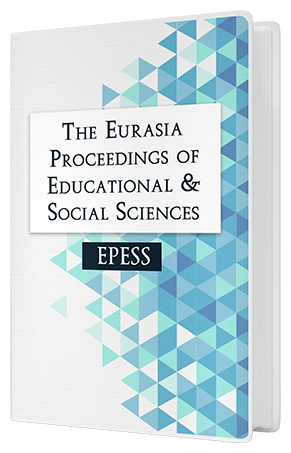Determination of the relationship between the Vocational Qualifications and Academic Programs on a Perceived Competencies Basis Approach: A Case for Geographical Information Systems
DOI:
https://doi.org/10.55549/epess.1380434Keywords:
Vocational qualifications, Geographical information systems, GIS specialist, Learning outcomesAbstract
GIS education and training activities become widespread as GIS utilization inevitably increases worldwide. Besides, vocational standards and qualifications are developed to form a quality assurance basis for GIS-related jobs and services and the employment of qualified personnel. From this perspective, this study aims to examine to what level the graduates of GIS associate degree, master, and doctorate programs have gained the necessary knowledge and competencies defined in the GIS Specialist (Level 6) National Qualification throughout their academic education. Within this context, an online survey was developed based on 43 performance criteria derived from the vocational qualification units (A1, A2, A3). The respondents were asked to self-evaluate the achievement of the given criteria during their academic education on a 5-point Likert scale. It was detected that 39.1% of the 174 survey participants have associate degrees, 61.7% have master's degrees (with thesis, without thesis, and distance education), and 6.9% have doctorate degrees. In comparison, 3% of them completed the GIS certificate program. The results showed that the competency achievement perceptions in the A3 section increased following the education level of the graduates. No significant difference was determined for A1, while an insignificant difference was detected for the A2 unit between the graduates of doctorate and distance education master's degree programs. The results are expected to be adopted by the relevant parties to align the GIS education programs with the sectoral needs and vocational qualifications.Downloads
Published
Issue
Section
License
Copyright (c) 2023 The Eurasia Proceedings of Educational and Social Sciences

This work is licensed under a Creative Commons Attribution-NonCommercial-ShareAlike 4.0 International License.
The articles may be used for research, teaching, and private study purposes. Any substantial or systematic reproduction, redistribution, reselling, loan, sub-licensing, systematic supply, or distribution in any form to anyone is expressly forbidden. Authors alone are responsible for the contents of their articles. The journal owns the copyright of the articles. The publisher shall not be liable for any loss, actions, claims, proceedings, demand, or costs or damages whatsoever or howsoever caused arising directly or indirectly in connection with or arising out of the use of the research material. All authors are requested to disclose any actual or potential conflict of interest including any financial, personal or other relationships with other people or organizations regarding the submitted work.




